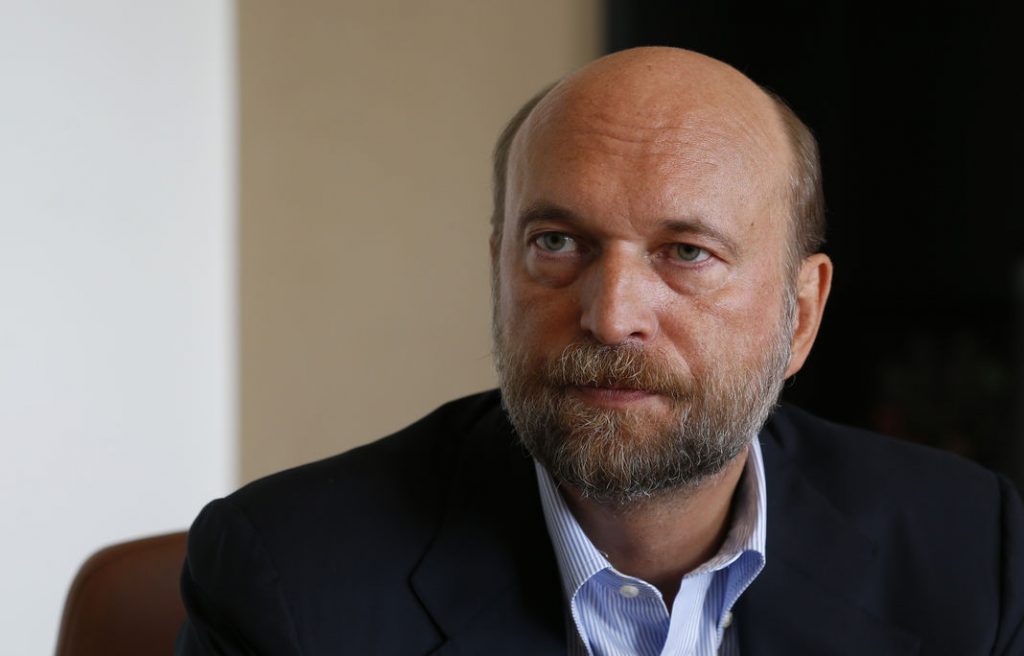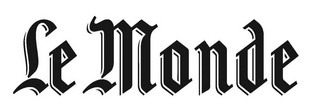L’ancien proche du président Vladimir Poutine, qui vit en France, affirme avoir été victime d’une expropriation méthodique de ses biens.
Par Benoît Vitkine
L’épilogue de l’interminable bataille judiciaire opposant l’ancien oligarque russe Sergueï Pougatchev à la Fédération de Russie n’est pas encore en vue. Mais la décision d’un tribunal d’arbitrage parisien, attendue mi-juin, sur l’imposition de mesures intermédiaires à la partie russe donnera une première indication sur les chances de M. Pougatchev de toucher un jour les milliards d’euros qu’il réclame en compensation de « l’expropriation » dont il dit avoir été la victime.

Avec ces mesures conservatoires, cet ancien proche de Vladimir Poutine espère éviter la mésaventure de l’affaire Ioukos : en juillet 2014, les anciens actionnaires du groupe pétrolier de Mikhaïl Khodorkovski se sont vu accorder par un tribunal d’arbitrage néerlandais une compensation de 50 milliards de dollars (46 milliards d’euros), mais ils s’acharnent depuis en vain à obtenir une exécution de la sentence.
Lors d’une audience le 17 avril, M. Pougatchev a demandé à la cour d’imposer à la Russie des garanties. Au choix : le placement de 5,5 milliards d’euros en cash sur un compte séquestre ; le dépôt de 12 milliards en garanties d’Etat ; le gel préalable d’actifs à l’étranger. « Si la Russie ne paie jamais, à quoi bon me démener ? », résume l’ancien oligarque de passage à Paris, avant de repartir pour la Côte d’Azur où il réside.
Chantiers navals, mines, propriétés…
L’affaire est en tout point hors norme : par les sommes en jeu, et par son arrière-plan politique. Ancien sénateur de la région sibérienne de Touva, citoyen français depuis 2009 – il a abandonné en 2012 sa nationalité russe –, l’homme d’affaires réclame depuis 2015 à la Fédération de Russie au moins 11 milliards d’euros, en vertu du traité bilatéral d’investissement signé en 1989 entre la France et l’Union soviétique, dont la Russie est héritière. La Cour d’arbitrage de La Haye, qualifiée pour juger les litiges relatifs à ce traité, a accepté la demande de M. Pougatchev que les audiences se tiennent à Paris. Pour des raisons de sécurité : à Londres, où il vivait avant de s’installer définitivement en France, la découverte d’engins suspects sous sa voiture fait toujours l’objet d’une enquête.
Sur le fond, Sergueï Pougatchev estime avoir été victime d’une expropriation méthodique des fleurons de son empire commercial bâti dans les années 1990 : chantiers navals à Saint-Pétersbourg, mines de charbon en Sibérie, propriétés et terrains jusque sur la place Rouge… Soit, en tout, un minimum de 11 milliards d’euros.
La Russie conteste ces accusations, et mène ses propres procédures judiciaires contre M. Pougatchev pour escroquerie et détournement de fonds. La justice russe l’accuse notamment d’avoir soustrait 1 milliard de dollars au moment de la faillite, en 2010, de sa banque, la Mejprombank, ce qu’il a toujours nié, arguant du fait qu’il n’était plus aux manettes de l’institution depuis 2001. Dans une Russie où l’idée de justice indépendante relève de la fiction, il est quasiment impossible d’évaluer la réalité des charges retenues contre un individu. Seule compte la disgrâce, forcément validée par le pouvoir politique.
Dans les années 1990, Sergueï Pougatchev était un très proche du clan Eltsine, dont il hébergea les premiers comptes dans sa banque. Il a ensuite accompagné l’arrivée au pouvoir de Vladimir Poutine, dont il dit – avec un soupçon d’exagération – avoir été le mentor des premières années. Pourquoi alors cette brutale déchéance de celui qui fut un serviteur loyal du régime ? En janvier 2015, il expliquait au Monde avoir toujours été un « opposant du tête-à-tête », tentant d’infléchir de l’intérieur le maître du Kremlin. En aucun cas une menace pour M. Poutine.
Investissements trop ostensibles
L’homme d’affaires a toujours avancé deux explications : d’abord la volonté de membres de l’entourage du président, une nouvelle génération d’oligarques menée par le puissant Igor Setchine, de s’approprier de juteux actifs ; ensuite, le résultat du « complexe » du président, soucieux de tirer un trait sur ses premiers pas hésitants au Kremlin. « Du groupe de gens qui ont été témoins et parfois acteurs de son passage du statut de rien à celui de président, il ne restait que moi, expliquait l’homme d’affaires en 2015. Il veut que l’on oublie cette époque. »
Sa chute aurait aussi été précipitée par sa propension à investir de façon trop ostensible en Europe, et notamment en France. Dans les années 2000, alors au faîte de sa puissance, M. Pougatchev s’était offert l’épicerie de luxe Hédiard, pendant que son fils rachetait le quotidien France-Soir. Les deux affaires ont périclité.
Aujourd’hui, l’oligarque déchu affiche son optimisme sur les résultats de l’arbitrage, attendu en 2018. « Ce sera très simple : à qui appartient le bien aujourd’hui ? Où est l’argent qui aurait dû être versé en compensation ? » Son principal atout : des documents prouvant que l’Etat russe s’était engagé à racheter les actifs finalement expropriés. L’un de ces documents, les minutes d’une réunion ministérielle, consulté par Le Monde, suggère un plan de bataille pour faciliter la vente par M. Pougatchev de ses chantiers navals, recommandant notamment que le FSB, les services de sécurité russes, « entame des vérifications (…) sur des traces de crimes » à la direction de l’entreprise.
La partie russe, elle, ne communique pas – un fait inhabituel dans ces batailles à plusieurs milliards où l’image importe au moins autant que les joutes d’avocats.
Source: Le Monde
